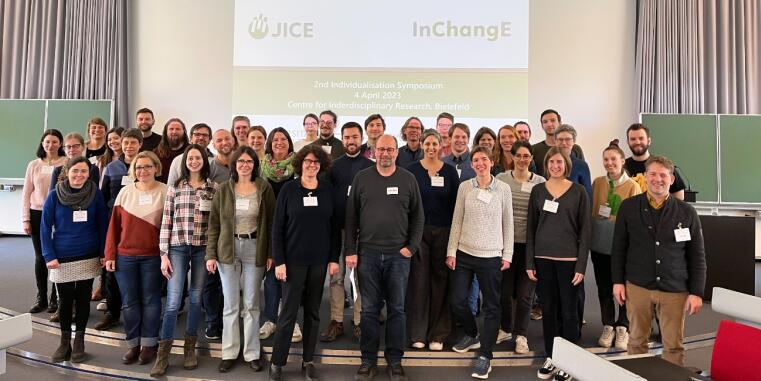
About us
Individuals differ. Aristotle made this almost banal statement 2,300 years ago, yet it is more up to date than ever as a research topic. Individual differences do not only exist in humans, but in all organisms. While individuality has a long tradition as a research topic in the humanities and social sciences, research on individual differences in biology has only recently come into focus and has become a core area of organismal biology. In this context, the SFB-TRR 212 of the Universities of Bielefeld and Münster, as one of few national joint research projects, has been focusing on the individualised niche and the mechanisms of individualisation in animals since 2018.
Hence, individualisation is intensively studied in the humanities and social sciences as well as in biology – but largely without exchange regarding methods, questions and generalisation of results. But it is precisely this collaborative discourse that is important to enable a comprehensive understanding of the causes and effects, opportunities and risks, as well as the ethical evaluation of increasing individualisation.
As individualisation has so far only been studied within the disciplines, we want to systemically investigate individualisation in changing environments in an interdisciplinary discourse of natural and social sciences and humanities. The Joint Institute for Individualisation in a Changing Environment (JICE) – funded by Bielefeld University and the University of Münster – brings together these different disciplines for the first time to overcome the discipline-centred view and to interdisciplinary explore individualisation in changing environments in an unprecedented breadth.
Individualisation, its opportunities and risks, and its normative evaluation affect each and every one of us. Individualisation can help us to react more quickly to change or changing environmental conditions and to be more resilient. This applies to both animals and humans and opens up perspectives for understanding change as an opportunity, both for the individual and for communities.
Research questions
Individualisation always involves interaction with the environment. The key questions are therefore: How do organisms and people adapt to ever faster changing environments? And what role do increasing individualisation and individual decisions play in tension with the common good.
Some of the questions we are investigating in our collaborative projects are:
- Which experiences in which phases of life influence individualisation and are the corresponding findings comparable across disciplines?
- Can we use individualised models to better predict the decisions of individuals and thus explain how and why extreme behavioural phenotypes can occur?
- Can this gain in knowledge be used to develop better individual therapeutic and problem-solving approaches for the conflict between individualisation and cooperation?
- What significance does the dissolution of rigid social and gender orders have for individualisation?
- To what extent does increasing individualisation change a society and how can the conflict between individual interests and the common good be resolved?
- How are these processes to be evaluated and shaped ethically?

